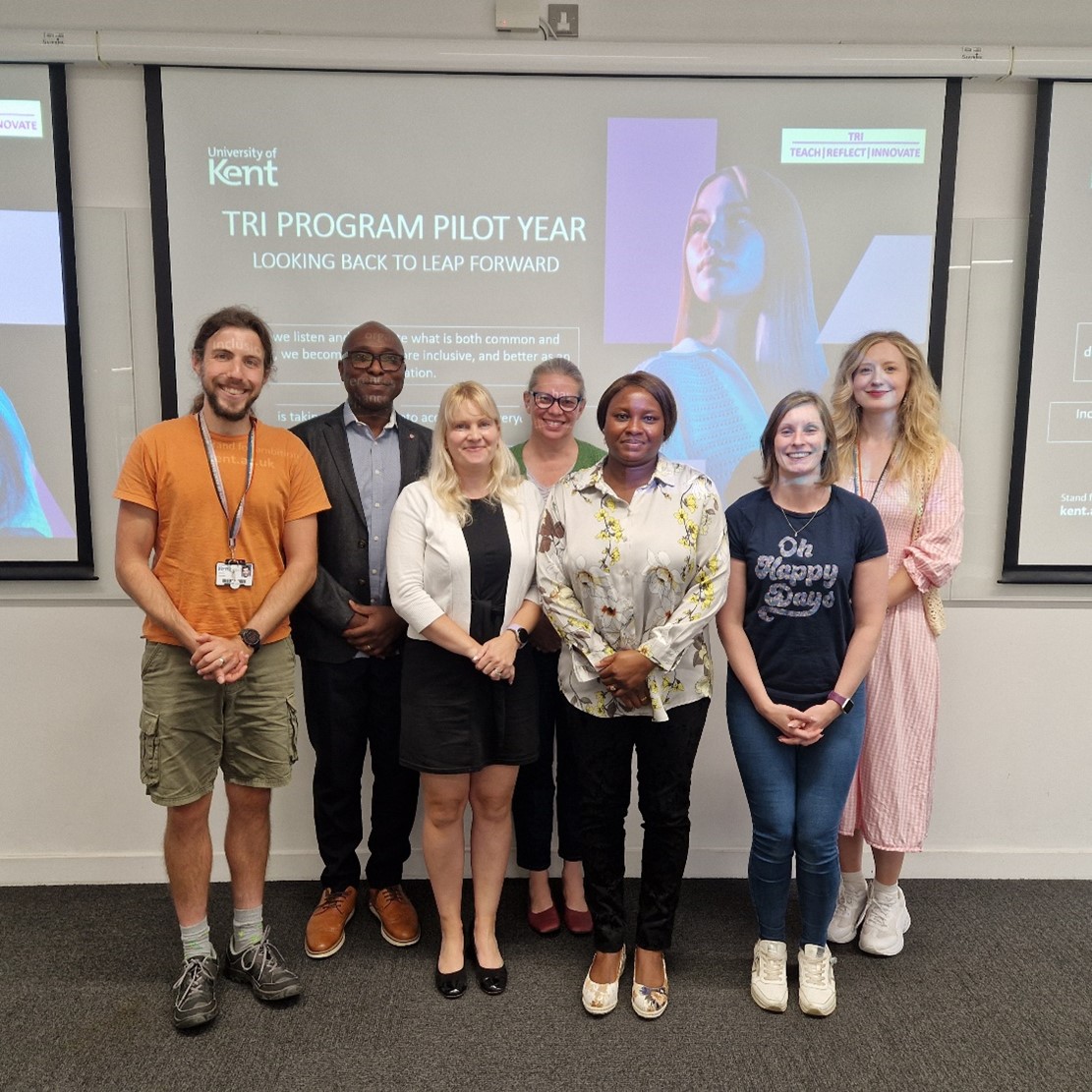Photograph from the last session of TRI pilot year (4th September 2024)
Celebrating the Success of TRI’s Pilot Year – Dr Yetunde Kolajo
The pilot year of the Teach Reflect Innovate (TRI) Programme, spanning the 2023/24 academic calendar, has concluded successfully. Thank you to all participants for their invaluable time, commitment to fostering inclusivity at the University of Kent, and the scholarly contributions made through the Reflective Teaching Workshops (Coffee Catch-Up Sessions). Your engagement with the Reflective Teaching Moodle page and the cultivation of a vibrant Community of Academic Practice, both within the cohort and on the Teams Channel, have been instrumental to the programme’s success.
The overarching theme for this pilot year, Inclusive Teaching, resonates with the growing body of literature that underscores the inseparable link between reflective practice and the achievement of inclusivity in education. As educators striving to adopt inclusive pedagogy, one must consistently interrogate their teaching methods, asking critical questions about inclusivity in pedagogy, the broader goals of inclusive education, and its practical applications within diverse learning environments.
Reflective teaching practices have proven highly effective. The impact of our seven sessions, conducted between November 2023 and September 2024, was demonstrated during the year-end presentations, where participants shared thoughtful reflections on their teaching and showcased innovative approaches to student engagement and support. The iterative process of refining pedagogical strategies, informed by critical reflection and innovation, speaks to the programme’s success in fostering significant advancements in teaching methods.
The pilot year of the programme corroborated existing research, empirical data, and practical insights, highlighting the critical significance of providing equitable, diverse, and inclusive learning environments. These efforts are essential to foster academic success and a profound sense of belonging among Kent’s diverse student population. The findings further affirm the pivotal role of inclusive pedagogical practices in enhancing student outcomes and creating a supportive educational climate.
Reflective practice is adaptable across all academic disciplines. For those embarking on this journey, I recommend employing a structured framework to guide the reflective teaching process – Reflection-for-Action, Reflection-in-Action, and Reflection-on-Action. These stages offer a systematic approach to integrating reflective inquiry into teaching practice, ensuring continuous improvement.
Thanks to Prof Dan Lloyd for facilitating the collaboration between Student Success and the distinguished NATS academics. Appreciation is extended to those who contributed from Student Success and Lucy Panesar from the Centre for the Study of Higher Education.

